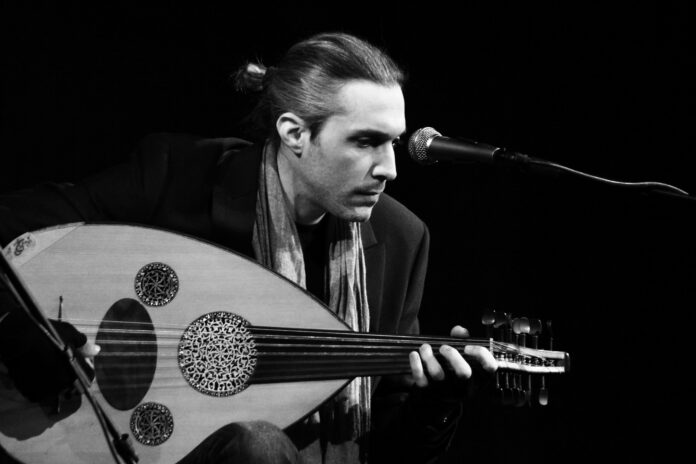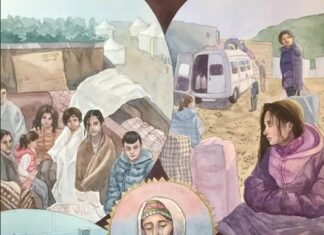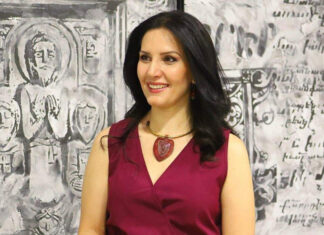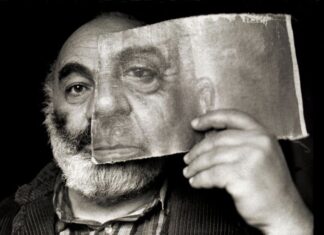YEREVAN — Thirty-six-year-old Tigrane Kazazian is an oud player, multi-instrumentalist, composer and singer. He was born in Cairo, in the family of a musician and a historian. From the age of 5 to 17, he played tennis at a high-level in Egypt and France. He also started studying the violin and piano since he was a child, and at the age of 18, he learned to play the oud on his own. He studied at the American University of Cairo and Concordia University of Montreal. In 2012, he moved to Armenia to study at the Komitas State Conservatory. In 2018, Tigrane created the Kazazian Trio with duduk player Arsen Petrosyan and percussionist Eduard Harutyunyan. In 2021, Kazazian’s album “Cairo Nights” was published by “Green United Music” company; in 2023, his second album “Still Love” was released by L’horizon Violet/Absilone. He plays avant-garde, folk, and world music-inspired original compositions; he has performed in a number of countries with a trio and concerts with various musicians. He also writes music for documentary films.
Tigrane, I congratulate you again for your performance with the Lucy Khanyan Trio on November 10, during which you performed your works, as well as one of your father’s works. The combination of oud, electro-acoustics, bloul and piano was very original. How would you describe that unusual musical fusion?
It is very difficult to define genres and categories with words. They say avant-garde folk, world music, ethno-jazz, but none of the names are accurate.
By the way, it is also difficult to define the genre of works of your father, Georges Kazazian.
He started with various Egyptian folk instruments, then switched to flamenco, jazz and finally to Indian music. All that is in his music, and I learned that from him — to embrace world cultures with an open mind. And the most important thing is to know what we are saying through that music.
While listening to your last concert, I was surprised to find that I felt better. After the concert, another listener, an artist, told me the same thing. Have you been told about the healing effects of your music?










